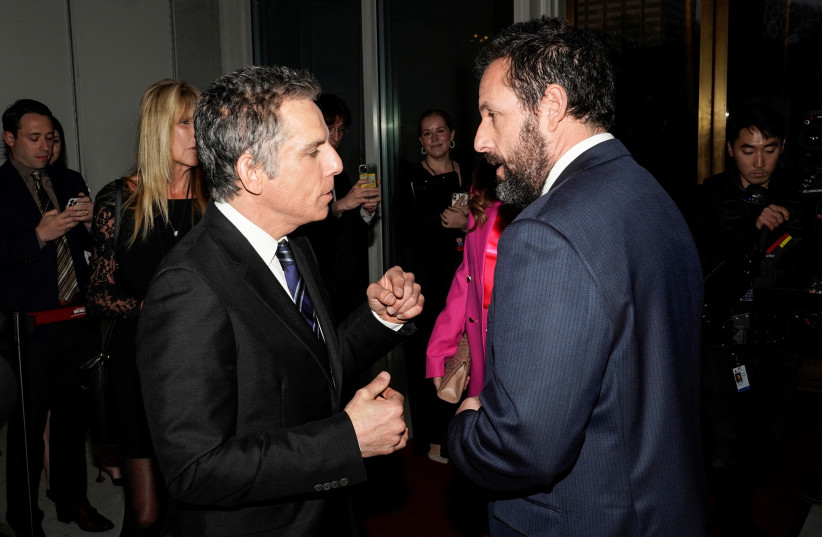Everyone has an opinion on the war in Gaza and how to handle the Arab-Israeli conflict. It’s not just that people hold these opinions but that they feel that they have to express them publicly. From governments around the world, to media outlets, to individuals – experts or not – everyone feels a need to weigh in.
One recent voice making the rounds is an op-ed in Time magazine headlined, “Ben Stiller: Why I can’t stay silent about the suffering in Israel and Gaza.” Many would say how brave the piece is, but when put to simple scrutiny, it’s clear that not much was said.
Stiller takes a stand against antisemitism and the plight of the Gazans because he’s both Jewish and a public advocate for refugees. He comes to the defense of the Gazans while making no reference to the some 100,000 internally displaced Israelis. He also fails to mention the 275 daily aid trucks being shipped into the region, which debunks the myth that there is a famine in Gaza.
Stiller’s defense touts the Biden administration’s line that Israel does have a right and need to defend itself, but just not in this way. The real problem, according to Stiller, is Prime Minister Benjamin Netanyahu’s right-wing government. If only he’d stop pursuing these policies, all of the problems in the Middle East would magically disappear.
Positions such as these accomplish nothing. They are a safe way of saying something while not saying anything. It’s as if the “Stillers” of the world want to prove that they believe Israel should exist, but remain “one of the good guys.”

Similar conversations in Efrat
A SIMILAR conversation has arisen in my neighborhood in Efrat, where everyone seems to have an opinion. Before the war, residents of the neighboring Arab communities entered as day workers, albeit passing through a heavy screening process. For the past 30 years, my family employed a cleaner from Wadi Neis, an Arab town to our east. However, October 7 changed all that and required us to close our borders. The larger conversion now is whether or not to allow these workers in again.
The discussion became tense last week when an Efrat resident called the Arab workers “vermin,” insisting they shouldn’t be granted access again.
Thankfully, the majority of the town does not think of our cousins this way. In fact, one resident, Rabbi Avidan Freedman, wrote a blog pointing out how this type of fear leads to racism and how we have an obligation to provide for our neighbors who are impoverished from this closure.
While it is true that this language needs to be curtailed, our relationship to our bordering towns is complicated. As much as I miss the connection I had with the local Arabs and how it pains me that the peaceful future I hoped we were building is shattered, our security must come first.
We have no obligation to help people who wish us harm. Of course, not all Arabs are terrorists, but it’s well documented that over 70% of the Arab population in Gaza, and Judea and Samaria, support Hamas and the terror organization’s October 7 attack on Israel. In this particular climate, I don’t blame anyone for being concerned about letting even people they’ve known for a long time into their homes.
I wish I had an answer on how to move forward to reintegrate our societies but I’m not sure it’s the time yet. Trust has to be built back again. I pray for the day that all this is behind us. But until that time arrives, as much as it pains me, I think we still need to fortify our borders.
The writer is a rabbi, a wedding officiant, and a mohel who performs ritual circumcisions and conversions in Israel and worldwide. Based in Efrat, he is the founder of Magen HaBrit, an organization that protects the practice of brit milah and the children who undergo it.
